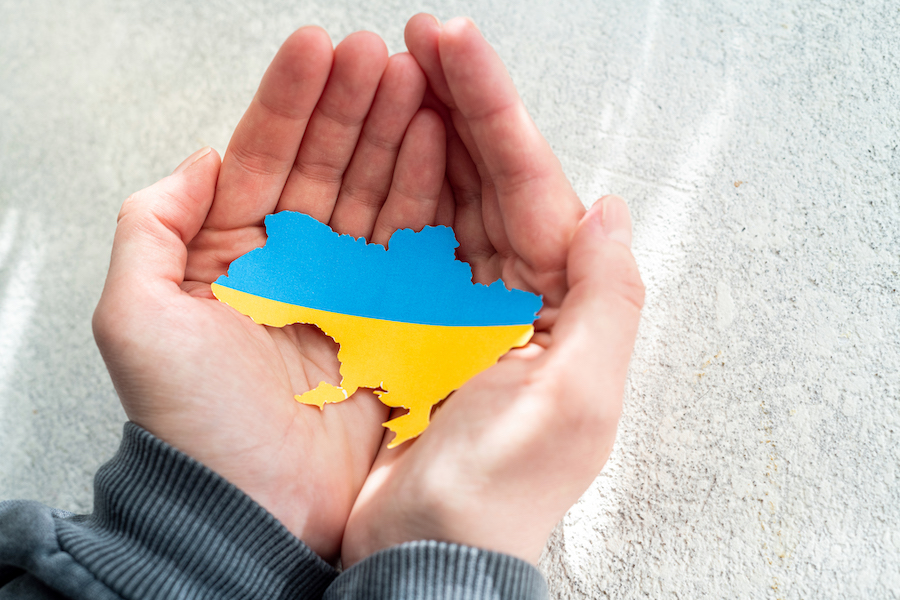Immigration Minister Pressed on Afghans
Out of 3,800 Afghans who applied, only 900 of them accepted
Jenny Kwan, chair of the NDP caucus, called on Immigration Minister Sean Fraser to explain why the Afghans, whose credentials were verified by Canada's military, have not had their applications to come to Canada approved.
Defence Chief General Wayne Eyre stated that around 3,800 Afghans, including interpreters, have had their identities checked and verified. However, only 900 of them have had their application accepted. This number is stark in comparison to the promise the Canadian government made last year to resettle 18,000 Afghans who had significant ties to the country.
Ms. Kwan is planning to pursue the issue vigorously, stating that
"when you are being hunted down and you are trying to hide from the Taliban, you can’t just walk into the office run by the Taliban and say, ‘Can you issue travel documents, issue passports for my entire family? The minute you do that, you are putting a red flag right on top of your head to be targeted."
She aims to have Canada issue a one-time travel document to eligible applicants.
Meanwhile, Minister Fraser’s office says the department is planning to extend more invitations in the upcoming weeks.
Aidan Strickland, IRCC's press secretary, said that after Global Affairs Canada and the Department of National Defence confirm an Afghan's ties to Canada, their name is forwarded to IRCC. Then, the IRCC sends an email to the people on the list, inviting them to apply. Only those who receive the email are eligible to apply for the special program.
"We have already received applications for more than 14,905 Afghan refugees under the special immigration program for Afghans who assisted the Government of Canada and approved over 10,000 applications. IRCC continues to process applications as quickly as possible,” said Strickland. She also added how more than 6,200 Afghans already arrived through the special program.
Canada Planning Major Express Entry Changes
Requirements to be Industry-Specific?
The government of Canada is planning to change the Express Entry system, which would enable the Immigration Minister to invite candidates based on an economic goal.
The proposed bill should help Canada select applicants that would match its economic needs the most and fulfill real-time labour requirements.
The change was first proposed by Philip Somogyvari, IRCC's Director-General, and is now being discussed in Parliament. Mr. Somogyvari explained how the new Express Entry system would work.
First, the Minister would be required to identify the economic goal and report annually to Parliament on the use of these draws. That economic goal would determine the type of individual who would be invited to apply. Work experience, educational background and language skills would all be assessed.
"For example, if there was a desire to leverage immigration to support the growth of Canada’s tech sector, a category of Express Entry candidates would be created based on criteria such as their possession of work experience in their sector occupation and/or their possession of a related educational credential. Invitations could then be issued to the top-ranked candidates in that category." Somogyvari said.
The government has no specific occupation listed that could be part of these draws, and the process of determining which groups would be selected is still in the development stage.
IRCC plans to partner and consult with employer groups and stakeholders, Employment and Social Development Canada, and provincial and territorial governments, and consider the objectives within the Immigration and Refugee Protection Act.
The Current System
The Express Entry system currently uses factors such as age, education, work experience, job offers, and language skills to rank candidates. Individuals who meet the cut-off for the Comprehensive Ranking Score (CRS) are invited to apply for permanent residence in Canada.
As of now, there are three streams of this immigration system:
- The Federal Skilled Worker Program -for skilled workers with the right qualification and experience;
- The Canadian Experience Class - for those who have at least a year's experience in Canada; and
- and the Federal Skilled Trades Program - for people with work experience
If the proposed bill passes, the applicants will only be invited based on criteria like academic credentials and industry-related occupations.
The Discussion
Jenny Kwan, the NDP immigration critic, called for the government to list the groups that would be affected by the proposed bill:
“I am troubled by the fact that there is no Parliamentary oversight as to what these groups will be. There’s no process as to whether these groups will be fair, or how effective [the government] will be in selecting people who would provide economic contributions to Canada.”
She also expressed concern regarding the lack of a transparent selection process where industries could provide formal submissions and let the public know which occupations are in need, saying that "(..) the process could become fodder for lobbying industries”.
Canadian Politician Wants to Improve the Super Visa
How long can Parents and Grandparents stay in Canada?
Canadian Member of Parliament Kyle Seeback is proposing a new bill that will support parents and grandparents coming to Canada. This initiative would affect the Super Visa, which currently allows the parents and grandparents of Canadians to visit for up to two years without renewing their status.
Seeback proposes the following changes:
- Allow parents and grandparents to be able to stay for 5 consecutive years without a visa renewal;
- Allowing the purchase of medical insurance from countries other than Canada; and
- Reducing the low-income cut-off
Similar to the Parents and Grandparents Program, the Super Visa allows multiple entries into Canada over ten years. However, a Canadian child or grandchild must meet the minimum income requirement to be eligible. Additionally, parents and grandparents must have independent medical insurance coverage with a Canadian company.
To date, the bill has passed its first and second readings and is now being reviewed by the Standing Committee on Citizenship and Immigration. For this proposal to become a law, it needs to pass the third reading, consideration by the Senate, and receive royal assent from the Governor-General.
Committee Members Questioning Seeback’s Bill
Committee members questioned Seeback's proposal, specifically the acceptance of foreign medical insurance. The committee voiced concerns that a foreign insurance company may not cover a medical bill and the burden would fall on a Canadian taxpayer.
That said, the price of Canadian insurance is relatively expensive. Foreign nationals in their early seventies, with no pre-existing medical conditions, can range from 1,7000 CAD to 4,600 CAD per year.
In response to this question, Seeback stated: “This doesn’t mean you can go to any insurance company anywhere in the world. I’m encouraging the Minister to set up a framework for the ground rules for when an insurance company would qualify so that people can purchase insurance outside of the country.”
Canada Providing Charter Flights for Refugees
Ukrainians Travel from Poland to three Canadian Provinces
In the next few weeks, Ukrainians who have been approved under the Canada-Ukraine Authorization for Emergency Travel (CUAET) program will have access to chartered flights to Canada. Those who have received their visas will receive an email from the IRCC with details on how to register for the flights.
Approved CUAET holders can fly out of Poland on the following flights, on a first-come, first-served basis:
- May 23 to Winnipeg, Manitoba;
- May 29 to Montreal, Quebec; and
- June 2 to Halifax, Nova Scotia.
Those who do not have accommodation upon arrival in Canada will be provided with temporary accommodation for up to two weeks.
The CUAET
Since the CUAET was introduced last March, Ukrainians and their immediate family members, regardless of nationality, can apply to stay in Canada for up to three years. Open work permits and study permits are also available with priority processing, which allows refugees to work with any Canadian employer or to enroll in a Canadian educational program.
The Government of Canada is prepared to provide temporary settlement assistance to Ukrainians arriving through CUAET until March 31, 2023. The assistance includes language training, information to help them access the labour market, counselling, skills developments, and training.
Series of Measures for Ukrainians
CUAET is among some of the latest measures Canada has put in place to help Ukrainians. To correspond with the emergency program, the Canadian government also offers a three-year open work permit, as well as expedited Family sponsorship for Ukrainians.
Additional measures to support Ukraine include:
- A dedicated hotline for Ukraine immigration enquiries;
- Urgent travel documents processing;
- Extension of work and study permits;
- Fees for travel and immigration documents are currently waived;
- Canada is exempting unvaccinated Ukrainians from Canada's COVID-19 vaccination entry requirements; and
- Settlement program services.
Ukrainians can also book commercial flights, subsidized by the Ukraine2Canada Travel Fund, to enter the country. The fund was established in cooperation with Miles4Migrants, Air Canada, and the Shapiro Foundation, which will offer approximately 10,000 free flights to people fleeing war in the country.
More information about immigration measures for Ukraine can be obtained by signing up for IRCC's email updates here or by visiting this IRCC page.
How To Get a Canadian Study Permit?
A Guide for Studying in Canada
Last year Canada hit an all-time record by welcoming 450,000 international students. The country’s high-quality education, safety, security and multiculturalism are proving to be attractive for individuals looking to study abroad.
Another reason people might find Canada a great place to study is the fact that it allows international students to work during their studies, and become eligible for a Post Graduation Work Permit (PGWP).
With the PGWP, students have an opportunity to gain Canadian work experience, which can significantly improve their odds of gaining permanent residence in the future.
So, how can you study in Canada? Here are the steps you should follow:
1. Figure out where you want to study.
Canada has many high-quality schools, so it is important to research and find programs that match your interests and goals. You can also consult with the IRCC website to find a designated learning institution (DLI). If your school of choice is on the list, the government has authorized it to welcome international students.
If you plan to apply for a PGWP after graduating, ensure that the program and DLI are visa-eligible.
2. Apply and get the Letter of Acceptance
Once you have applied and have been accepted by a Canadian designated learning institution, you will receive a Letter of Acceptance (LOA). That letter must be submitted to the IRCC, along with your study permit application.
3. Apply for a Study Permit
You can submit the application on your own, or you can hire a Canadian immigration lawyer to prepare everything on your behalf.
The IRCC will ask for a list of documents to accompany your study permit application:
- Letter of Acceptance;
- Proof of financial support to cover your tuition and living expenses in Canada;
- Police certificates;
- Medical exams; and
- Letter of explanation detailing your career objectives and ties to your home country.
If you are from an eligible country, you can apply via the Student Direct Stream. The processing standard for these applications is around 20 days but comes with some conditions. To submit your online application you must have a minimum score of 6.0 on each skill and have a Guaranteed Investment Certificate (GIC) with a Canadian bank for $10,000 CAD.
Students from the following countries are eligible to apply for the Student Direct Stream:
- India;
- China;
- The Philippines;
- Pakistan;
- Vietnam;
- Morocco;
- Senegal;
- Brazil;
- Colombia;
- Peru;
- Antigua and Barbuda;
- Costa Rica;
- Trinidad and Tobago; and
- Saint Vincent and the Grenadines
After graduation and one year of Canadian work experience, you are eligible to apply for permanent residency.





